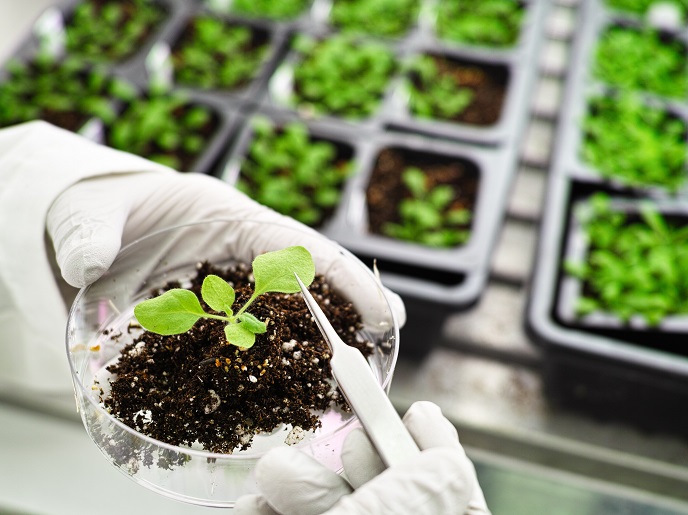Plant-produced medicines
Plants have long been considered important alternatives to bacteria, yeast, and mammalian cells for biotechnology purposes to produce medicines. Their cultivation is low-cost, accessible worldwide and can be scaled up. Molecular farming in plants can take place through transient expression of a protein of interest or through the transfer of genetic material to generate transgenic plants. Alternatively, pharmaceutical proteins can be produced in vitro by plant cell suspension cultures.
Promoting the production of high-value compounds from plants
Despite proof‐of‐principle studies demonstrating the potential of plants as reliable production systems of biologics, the early development of plant‐based pharmaceuticals suffered from low yield and limited regulatory guidelines. Moreover, the existence of plant‐specific glycans potentially increased the risk of adverse immune responses. These obstacles have been largely overcome, but there is a need to gain more widespread acceptance of plant platforms as manufacturing systems of proteins that can be exploited as reagents, in diagnostics and as therapeutic biologics. The EU-funded Pharma-Factory(opens in new window) project was conceived to advance plant based systems for the production of medical, veterinary and diagnostic products. “Our key objective was to engage various stakeholders, including the public, remove bottlenecks and facilitate acceptance of plants as production systems of medications,” explains project co-ordinator Julian Ma.
Going beyond plant-based pharmaceuticals
The consortium developed diagnostic reagents for COVID-19(opens in new window) and immunotherapeutic antibodies(opens in new window) for rheumatoid arthritis. Additional examples include the production of an enzyme replacement therapy(opens in new window) for Hurler syndrome, a rare form of lysosomal storage condition. However, the use of plant-based biotechnology systems was not limited to the production of human proteins. Pharma-Factory scientists also developed a vaccine for fish aquaculture(opens in new window) in the form of an algal food additive. Their approach has the potential to reduce cost and improve practicality, as current vaccines require each fish to be manually handled and injected. Furthermore, the consortium generated and freely disseminated a plant molecular farming kit(opens in new window) to researchers and secondary schools. According to project manager Mathew Paul: “The decision to target freethinking researchers as well as the education sector is a highly innovative approach to public engagement and widening participation. We believe that the decision to offer this kit free of charge will ultimately benefit plant biotechnology platforms by encouraging wider use and broader development.”
Improving technologies and communication in the plant molecular farming field
Undoubtedly, Pharma-Factory provided technological innovations that allowed SMEs to overcome hurdles and develop commercial solutions for human use and beyond. The consortium’s contribution to the plant molecular farming field is also noteworthy through the introduction of new techniques and research findings. Moreover, the consortium gained important insight into ways to engage with the public and communicate plant molecular farming aspects to stakeholders. Also, researchers identified considerable weakness with respect to terminology consistency since its inception in the early 1990s. A common language including symbols and icons is therefore important for communication coherence among the plant molecular farming community. To further assist and guide new companies looking to build a business using plant molecular farming platforms, the consortium will feed the experience gained on regulatory compliance.







